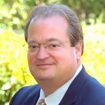
 By Bruce Piasecki
By Bruce Piasecki
April 12, 2012
So many firms stop growing in their third to fifth decades, limited by the personalities and preferences of their founders and friends. My firm, AHC Group, struggled with stagnation as well. For us, the answer resided in figuring out the connection that exists between freedom and fate. There were times we had to tie our fate to the ship of others for proper buoyancy and lift. We had to concede freedoms and transform them into the intensity of group action.
One of my mentors, E. F. Schumacher, convinced me, at a critical point in the development of my company, that I could grow the firm without debt, despite what the banks wanted to offer me. And more importantly, he suggested that being small in size could allow us to be big in impact and purpose. I found that appealing in terms of freedom and fate.
I centered my venture ego (the ego required to found a company) on this idea of a beautiful smallness, avoiding the need for outside venture money. Too often an MBA starts a business plan with a debilitating gigantism at its core. Schumacher taught me how to base my firm’s use of science, accounting, taxes, human talent, and outsourcing on the frugal idea that people matter as much as rules and dollars. Manipulating rules and leveraging debt can prove demanding, while liberating the competitive and frugal impulses in dear colleagues can be much less expensive. An economics based on people allows this fundamental realignment of money, people, and rules.
I’ve grown my firm doing more with less each year by keeping clearly in mind Schumacher’s great book, “Small is Beautiful: Economics as if People Mattered.” After reading that book, I spent decades becoming the man holding the frugal enterprising balloons Schumacher spoke of, giving each its own inventive buoyancy and lift. And from this I have acquired wealth, freedom and the satisfaction of choosing projects of consequence. It does not take a massive headquarters to do what we do; we are highly decentralized, and we are interlinked across countries and regions. In retrospect, I was simply competitive and frugal. I did not want to be seduced by the appeal of size and debt and the mandates of many managing partners. I took the best from the best, and I redeployed.
You can do the same. I owe Schumacher a great deal, in fact and in practice, each day. They gave me so much for so little.
Dr. Bruce Piasecki is the author of “Doing More With Less: The New Way to Wealth.” He is the president and founder of AHC Group, Inc., a management consulting firm specializing in energy, materials, and environmental corporate matters. For more information about Piasecki, visit www.ahcgroup.com or www.doingmorewithlessbook.com.







